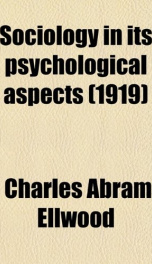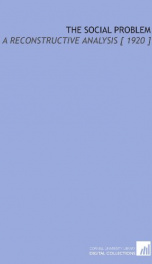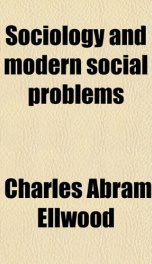sociology in its psychological aspects

Purchase of this book includes free trial access to www.million-books.com where you can read more than a million books for free. This is an OCR edition with typos. Excerpt from book: CHAPTER III THE RELATIONS OF SOCIOLOGY TO OTHER SCIENCES The Relation of Sociology to the Special Social Sciences. The relation of sociology to the special social sciences, economics, politics, ethics, and the like, has often been compared to the relation of a trunk of a tree to its branches. Perhaps, as Professor Ross has suggested,1 the tree in question should be thought of as a banyan tree, as many of these sciences have independent roots in psychology and biology. All of these sciences, however, derive their significance from the fact that they deal with some phase of human interactions; and they are, therefore, properly styled the special social sciences. The economics, the morality, the religion of a perfectly isolated being, if such could be thought of, would be something far different from the things we know under those names in human society. As was said above, the special social sciences deal with special phases or aspects of the social life; and they do this by a process of scientific abstraction, that is, by studying these phases as more or less separate, or abstracted from the total social life. They deal with problems which are relatively specific and concrete, concerning usually only one section or aspect of the social process. Their generalizations are, therefore, relatively partial and incomplete. Sociology, on the other hand, tries to reach generalizations of a higher order, which present a more general and fundamental view of the social reality. The social problems which are of a general nature,therefore, that is, those which pertain to the social process as a whole, are left necessarily to sociology. What these problems are has already been pointed out. i Foundations of Sociology, p. 87, The special social sciences are not logically competent to d...
Info about the book
Author:
Series:
Unknown
ASIN:
B0006AM7T6
Rating:
3/5 (2)Your rating:
0/5
Languge:
English
Users who have this book
Users who want this book
What readers are saying
What do you think? Write your own comment on this book!
write a commentif you like sociology in its psychological aspects try:
Do you want to exchange books? It’s EASY!
Get registered and find other users who want to give their favourite books to good hands!








